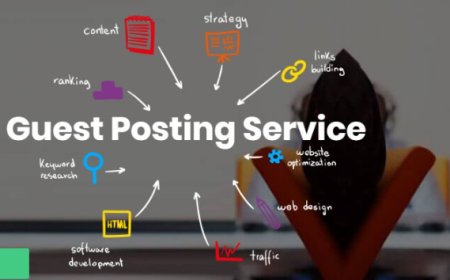The Complete Guide to AI on Inventory Management
Find out what AI inventory management software is doing for supply chains and business operations. This is a guide about how AI-driven smart solutions can optimize inventory management, minimize waste and improve productivity in any industry.

Introduction
It's no secret that Inventory Management has always been one of the most challenging and critical elements for businesses that deal with physical products. Whether its retail, manufacturing, health care or logistics, maintaining the right level of stock, preventing overstock or stockouts as well as forecasting demand accurately are important tasks. Thats where AI inventory management software comes in to make a world of difference.
But, companies are now also using AI-based inventory management solutions to manage supply chains more effectively, prevent human errors, and automate decision making. While conventional systems are based on historic data input and manual data entry, AI inventory management software can learn and adapt to patterns, constantly change, analysing data to optimize stock levels dynamically.
In this article we will take you through what you really mean when you talk AI in inventory management, how it functions, and the advantages it confers upon enterprises, mid-size and small businesses.
What is AI Inventory Management Software?
Machine Learning for Better Stock Management
AI-driven inventory management software Simplicity is key to success when using a machine learning-based logistics system AI-based inventory control is a process that uses machine learning algorithms to manage and optimize inventory levels and processes. It does much more than just keeping stock levels it can track trends, predict future demand, automate reorders, and even uncover waste in the supply chain.
Some standard features of this software are:
-
Real-time stock tracking
-
Historical and external data-driven demand forecasting
-
Automatic restocking alerts and purchasing
-
Slow-moving and obsolete inventory predictive analysis
-
Seamless connectivity with sales, finance, and logistic applications
These capabilities allow businesses to make better decisions while reducing both overstock and understock conditions.
Key Benefits of Using AI in Inventory Management
-
Demand Forecasting Accuracy
Old-style forecasting cant keep up with the rapid shifts in market dynamics. To generate precise demand forecasts, AI systems consider a wide range of factors, including sales history, customer behaviors, seasonality, and even weather patterns, then analyze these variables in real-time against hundreds of other data points.This leads to better matched inventory and less lost revenue due to products being out of stock.
-
Real-Time Inventory Visibility
One of the AI-enabled platforms provides all of this on a real-time dashboard for monitoring stock movements across several locations simultaneously. This visibility enables the supply chain teams to respond immediately to unplanned events, like spikes in demand or disruptions with suppliers.
-
Cost Reduction
AI eliminates holding costs by spotting surplus and suggesting the right reorder quantities. It also reduces waste, especially perishables as no food is wasted shelf life and turnover rates are forecasted with a great deal of accuracy.
How AI-Based Inventory Management Software Works
How Smart Inventory Tools Work Behind the Scenes
AI inventory systems are able to do this magic because they are very good at handling big data and learning from it, constantly. Heres a simplified explanation of how it works.
1.Data Collection:
It imports data from sources like sales records, supplier performance, warehouse activity and market trends.
2.Pattern Recognition:
Data is reviewed by machine learning algorithms to identify trends in your buying behavior, seasonal highs and lows, and inefficiencies within your supply chain.
3.Predictive Modeling:
The system generates predictive models from the patterns to predict future demand and supply requirements.
4.Automated Recommendations:
The tool later offers actionable guidelines like restocking recommendations or the optimal time to place a reorder with a supplier.
5.Continuous Improvement:
The systems predictions get better the more data is fed into it and as a result, the business becomes more and more refined in its operations as time goes on.
AI Inventory Solutions for Industries served by it
Retail
They can use AI to optimize inventory across stores, minimize shrinkage, and keep up with consumer trends on the fly. This is particularly important for fashion and electric items and seasonal items.
Manufacturing
For manufacturers, AI can help align raw-material-purchasing plans with production schedules. This way there is no down time in the production line for lack of material.
Healthcare
Hospitals and outpatient centers maintain medical inventory software, in order to keep medical supplies and medications stocked at all times, without overbuying short-shelf-life items.
Logistics & Distribution
AI is used to track shipments, estimate delivery times and mitigate bottlenecks through analysis of transportation routes and warehouse operations.
Barriers to the Adoption for Inventory Management AI Software
Integration with Legacy Systems
A lot of businesses are still on old, ERP or spreadsheet-based inventory systems. These legacy platforms are challenging to integrate with AI solutions, and may require an overhaul of IT.
Data Quality Issues
AI relies on clean, structured data. Poorly maintained or partial records may cause the process to be inefficient with inaccurate predictions.
Cost and Training
AI software can lead to long-term savings, but the initial spend on tools, implementation and staff training can be expensive particularly for small businesses.
Resistance to Change
Transitioning from manual or semi-automated to completely AI-based platforms frequently faces resistance inside the organization. The transfer will require investment in change management and training for companies, he added.
Selecting the Appropriate AI Inventory Solution
AI isn't AI. Here are some important ideas to consider before choosing a solution:
- Scalability: Can it handle your business at scale?
- Seamless Integration: Is it compatible with your current ERP or POS system?
- Personalization: Will you be able to customize it to cater to your industry-specific requirements?
- Training & Support: Do you get help to implement the solution and support as you go live and after?
- Data Privacy: Is it meeting industry data protection rules and standards?
By analyzing these factors, you can minimize the false starts and maximise your ROI on the new system.
AI Inventory Management Software in Action
Lets consider a real-world example. One large grocery chain in the Midwest deployed AI to manage inventory in all 50 of its stores. The system was linked to their sales system, and pulled in data, for instance on the weather and holidays, from outside to forecast demand for fresh produce.
-
Within six months:
-
Inventory waste dropped by 28%
-
Stockouts reduced by 45%
-
Reversal of time-reordering times was reduced by 50%.
-
In summary profit margins grew by 10%
Its a classic example of the business value smart software solutions can create.
Conclusion
Organizations can no longer rely on legacy inventory systems as customer demands continue to increase and supply chains grow more complicated. AI retail inventory software is designed to help make inventory smarter, quicker, and more precise.
Leveraging real-time monitoring, predictive analytics and automated recommendations, companies will be able to lower costs, prevent stockouts and increase customer satisfaction. From retail and healthcare to factory floors and warehouse, businesses across every industry are experiencing real returns.
Now is the time to implement smarter inventory practices. With the correct AI inventory management software, your company will be both agile and efficient, and will future-proof your business.
































